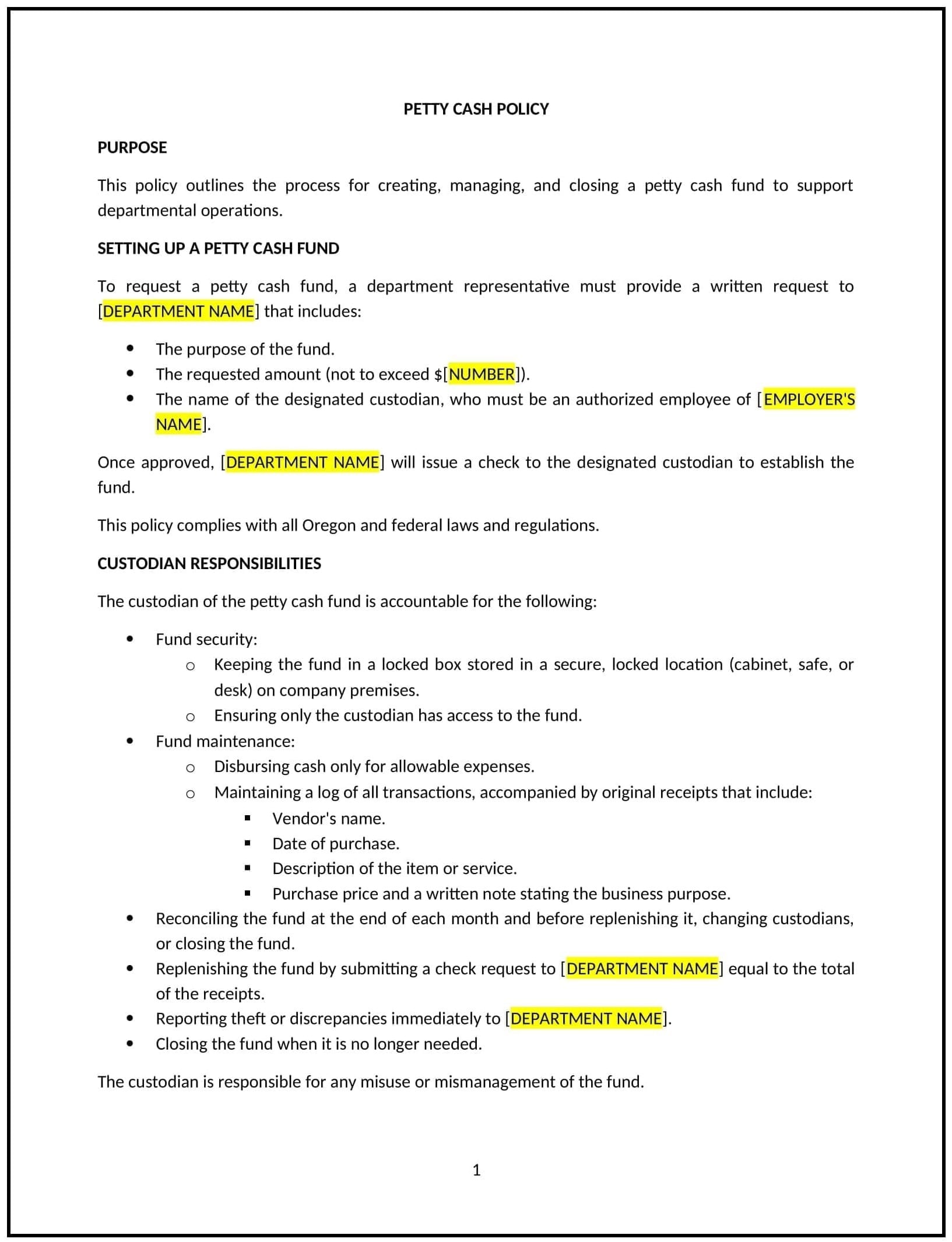Got contracts to review? While you're here for policies, let Cobrief make contract review effortless—start your free review now.

Customize this template for free
Petty cash policy (Oregon)
This petty cash policy is designed to help Oregon businesses establish clear guidelines for managing small, routine expenses. It outlines procedures for disbursing, tracking, and reconciling petty cash funds.
By adopting this policy, businesses can streamline expense management, reduce administrative burdens, and promote accountability for small purchases.
How to use this petty cash policy (Oregon)
- Define petty cash: Clarify what constitutes petty cash and its purpose, such as covering small, incidental expenses.
- Set fund limits: Specify the maximum amount of petty cash available and the maximum amount for individual transactions.
- Establish disbursement procedures: Outline steps for employees to request and receive petty cash, including required documentation.
- Assign responsibility: Designate a custodian to manage the petty cash fund and ensure proper record-keeping.
- Implement reconciliation: Require regular reconciliation of the petty cash fund to track expenses and replenish funds.
- Train employees: Educate staff on proper use of petty cash and documentation requirements.
- Review and update: Assess the policy annually to ensure it aligns with evolving business needs and financial practices.
Benefits of using this petty cash policy (Oregon)
This policy offers several advantages for Oregon businesses:
- Streamlines expense management: Simplifies the process of handling small, routine expenses.
- Reduces administrative burdens: Minimizes paperwork and approval processes for minor purchases.
- Promotes accountability: Ensures proper tracking and documentation of petty cash usage.
- Enhances financial control: Provides a structured approach to managing small cash expenditures.
- Builds trust: Demonstrates transparency in handling company funds.
Tips for using this petty cash policy (Oregon)
- Communicate the policy: Share the policy with employees and include it in the employee handbook.
- Provide training: Educate staff on proper use of petty cash and documentation requirements.
- Monitor usage: Regularly review petty cash transactions to ensure adherence to the policy.
- Address issues promptly: Take corrective action if petty cash is mishandled or misused.
- Update regularly: Assess the policy annually to ensure it aligns with evolving business needs and financial practices.